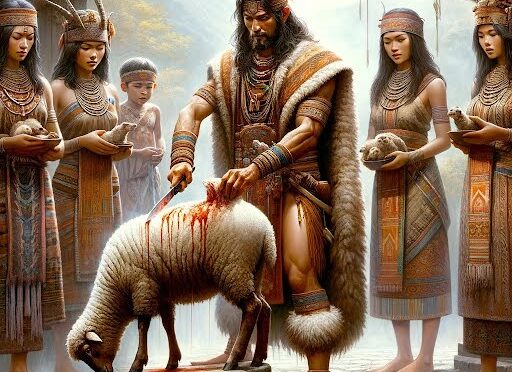Amon was married to Keti, the barn-door fowl, but after a while he took to himself four other wives. Keti, of course, retained her rights as head wife, and the other four wives obeyed her.
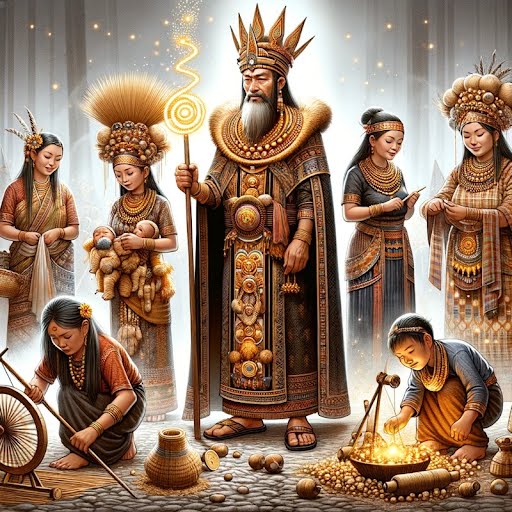
One day Amon called the four newcomers together and asked each one what present she would give in return for his raised her above other women in the tribe. The first one promised that she would always sweep his compound for him and keep the place neat and tidy; the second said she would always cook for him and never complain when there were many visitors; the third agreed to spin cotton for him and to bring him all the water he might require; and the fourth one said that she would bear him a child of gold.
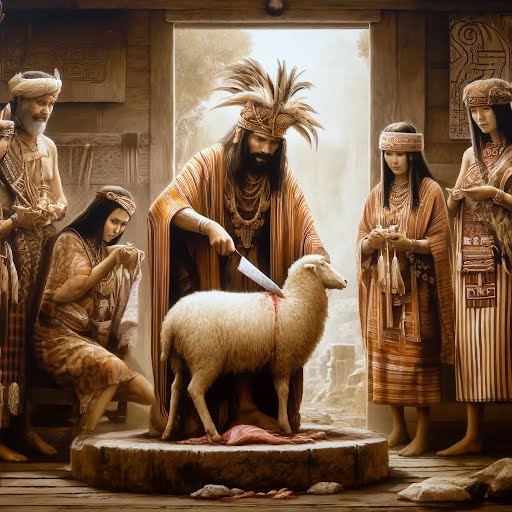
This last promise pleased Amon, and every day he killed a sheep for this woman. But the child was long in coming. Just when Amon’s patience was giving out. the woman conceived, and Amon detailed Keti to tend and care for her.
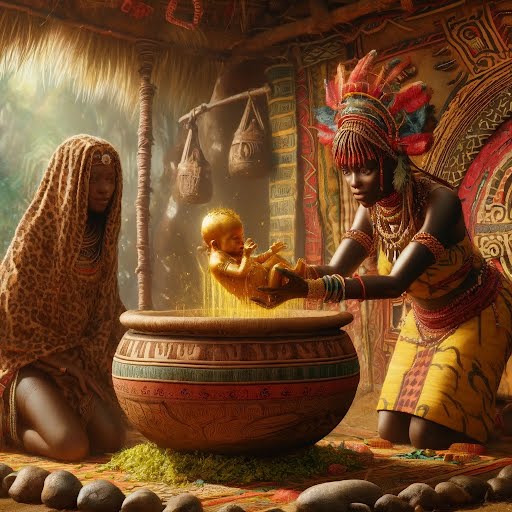
So Keti took the woman into her hut and, when the time of delivery was at hand, Keti told her that, whatever else she did, she was to be sure to shut her eyes when the child was born and not to open them until she was told to do so. The woman obeyed, and Keti hurried out and brought back a big pot.
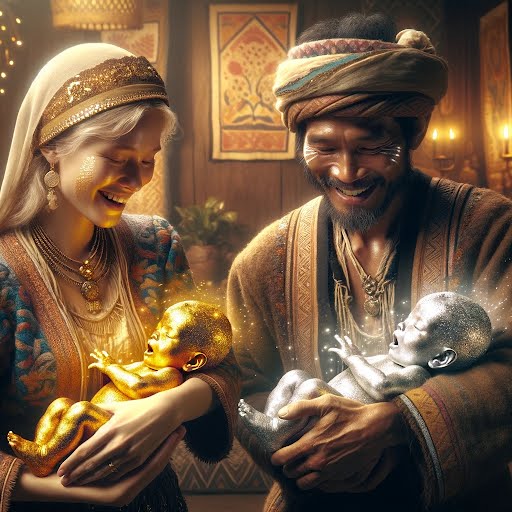
Now it happened that the woman bore twins. The first one to be born was made entirely of silver, and Keti at once took the babe and placed it in the pot. The second child of gold, and Keti placed it in the pot. The she hurried outside and found two frogs. Running with these, she placed them on the couch and then told the mother to open her eyes and see her children.
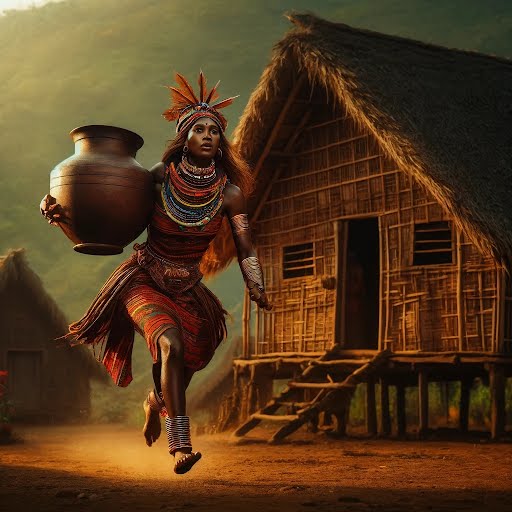
Then Keti hastened out of the hut with the pot and ran with it as fast as she could to the far, far bush, where she found a dead odum tree. There she hid the pot with the two babies and then returned swiftly to Amon’s compound, passing by his hut on the way. She told her husband that the children had been born and asked him to go with her to see his offspring.
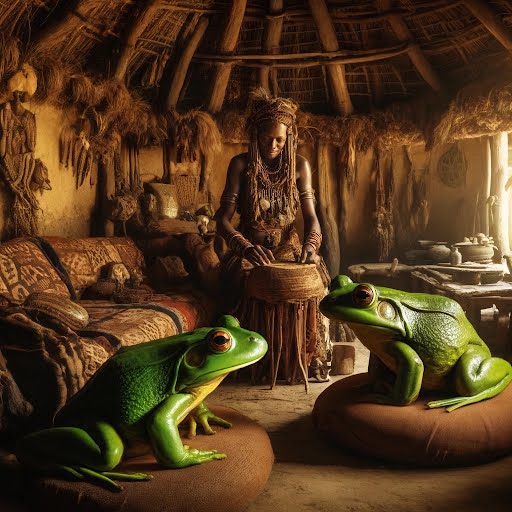
Amon at once arose and went to the hut where the mother was lying. To his consternation and anger, he found two frogs instead of the expected child of gold. He gave orders that the frogs were to be killed at once and that the woman should be sent into the furthermost corner of his kingdom.
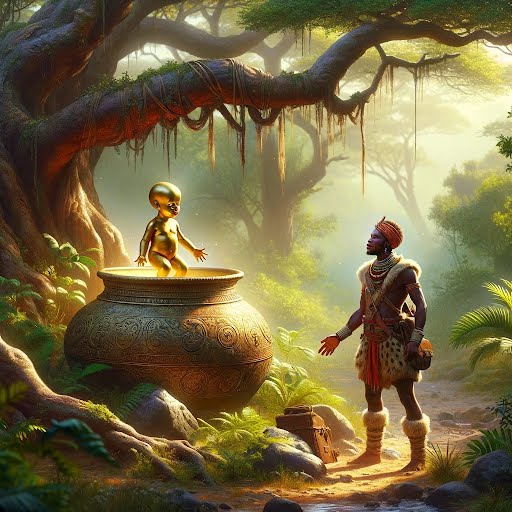
Now Amon has a certain hunter whose hut was situated in the far bush. He happened to be out hunting on the day the children were born and his chase led him to the odum tree. There his eye was attracted by the glitter of the golden child and he cried out, “Why, what is this?”
The children answered him, “We are the children of Amon” But he could not believe that.
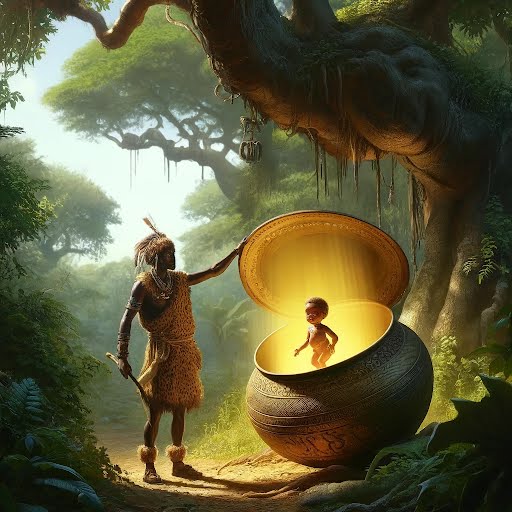
He took some of the dust that had fallen from their bodies, however, and put it into his bag. Then he took up the children and carried them to his hovel. There he kept them secretly, not did he tell any man of what he had found.
And every time the hunter wanted money he would gather some of the children’s dust. Thus he became a very rich man. Instead of having a solitary hovel in the bush, he built a huge compound and round him there gathered a great town.
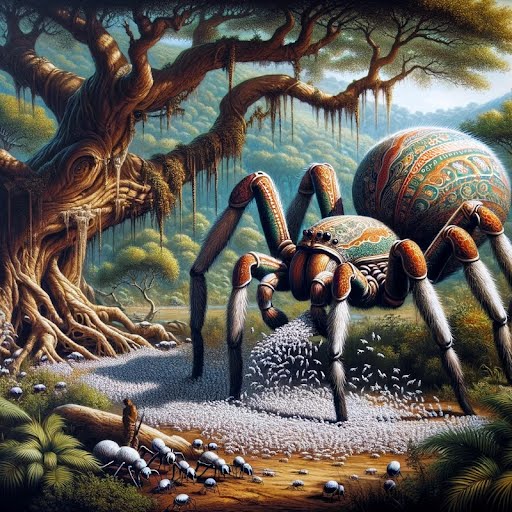
Now not very far away there lived Spider. One day he went into the bush to gather some white ants for his fowls and he came across the new town. He was astounded to see that in the place where he expected a hovel there was so much wealth and so many people. His curiosity aroused, Spider entered the town to learn how the change had come about. By sheer accident he espied the former hunter playing with the children. At once Spider knew that the latter were the lost children of Amon, and he hurried back home to send a message to their father. But the hunter has also seen Spider, and he knew full well that that busybody would betray his secret. Therefore he called the children and told them that, as they claimed they were the children of Amon, he proposed to take them to Amon.
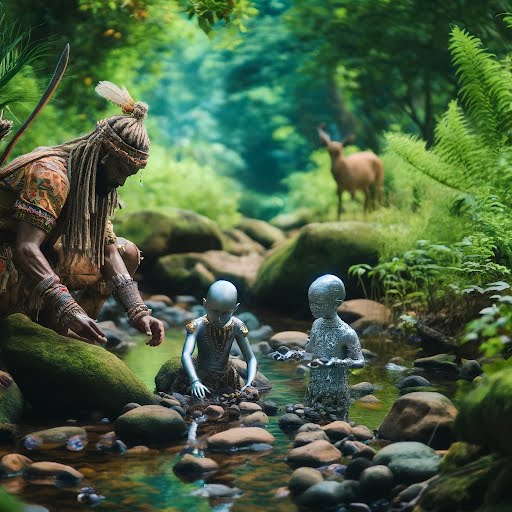
The next morning he prepared hammocks and fine clothes for the children and proceeded on the way to Amon. On the road the children called their foster-father and told him that he must collect some stones withe which to play wari, as they themselves could not speak to their father, but that the stones would tell him the whole story.
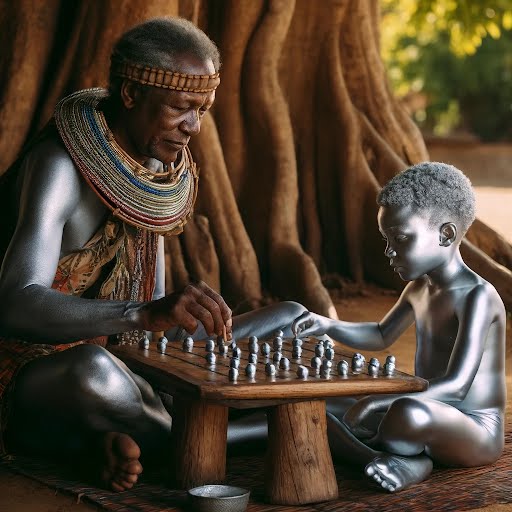
The man did so, and they arrived before Amon. There the hunter placed stools and asked Amon if he would play a game of wari with him. Amon agreed, but the silver child said, no, he himself wished to play, that the stones would tell the story for which they had come.
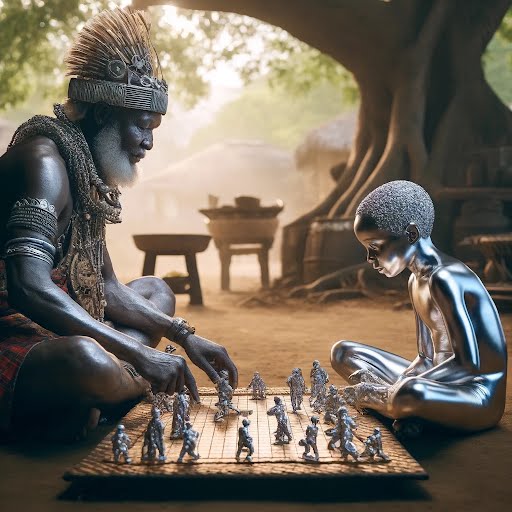
Then the silver child and Amon sat down to the game and, as the stones went round and round the board, the golden child sang the story of their adventures from the time of their mother’s promise until their birth; he sang of the baseness of Keti and of the kindness of the hunter who had fed them instead of killing them for their silver and gold.
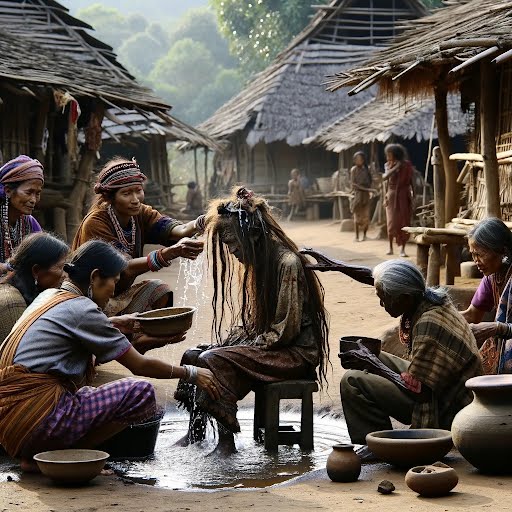
Then Amon knew them to be his children, and he sent straightway into the far, far bush to call back the woman whom he had exiled. When she arrived, she was dirty over and her hair was uncut and unkempt. Amon himself washed the woman, and when she was clean and nice again he sent for Keti.
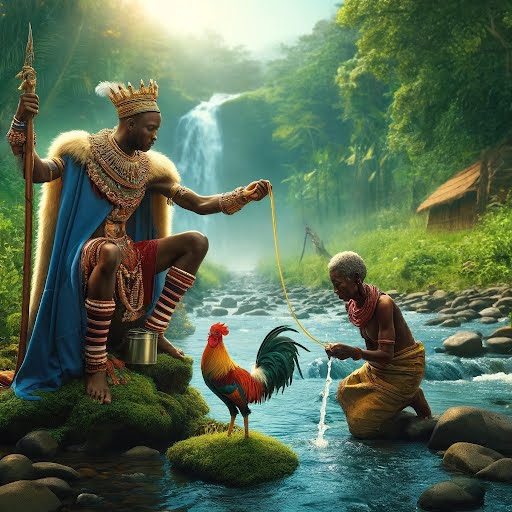
Great was Amon’s wrath. He tied the evil fowl Keti, his first wife, by he foot to a stick and cured her. Then he threw her down from the sky and gave orders that every time the fowl wished to drink she would first have to raise her head to him and beg. Further, Amon gave orders that every man would in the future sacrifice fowls as the ordinary sacrifices to the gods.
Are not these things done to this day?
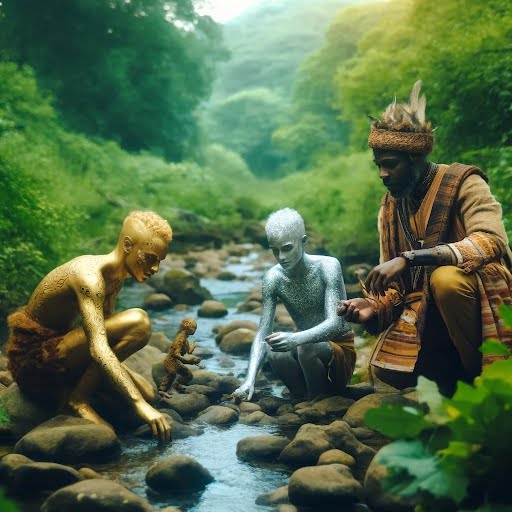
As for the children – once every year they are washed , and dust from them falls upon the earth. Some falls on men, and these are the lucky ones who become wealthy.
[ KRACHI ]
